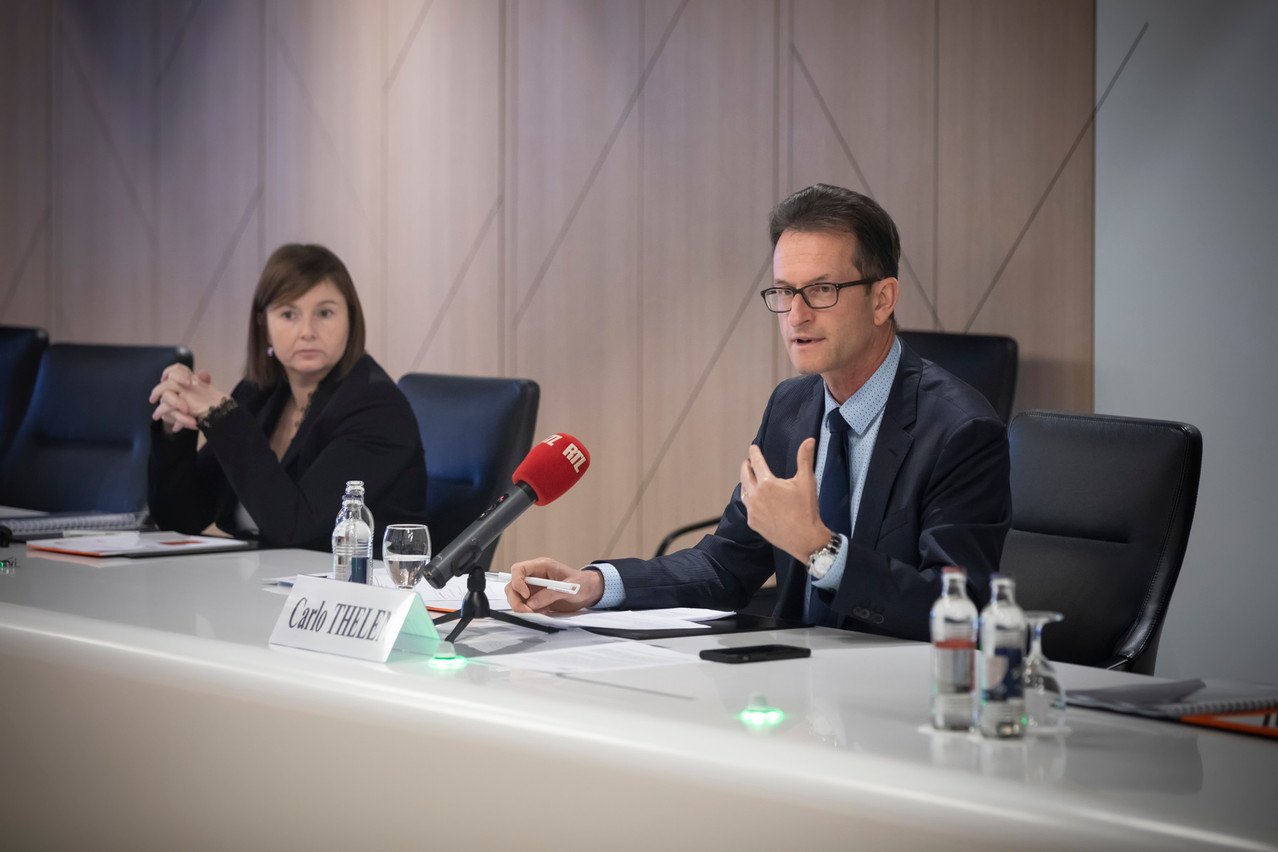After the criticism of the Chamber of Skilled Trades and Crafts and the Chamber of Employees (CSL), the state budget 2022 was less criticised by the Chamber of Commerce. However, the chamber did point out a number of areas where the government needs to pay more attention and even be a little more ambitious.
Carlo Thelen, the chamber's director general, called for a state budget that would promote the country's economic stability not in the short term but in the long term. Making the same observation as the Chamber of Skilled Trades and Crafts and the CSL, the Chamber of Commerce underlined the economic paradox that Luxembourg is currently experiencing.
On the one hand, the indicators show a certain dynamism with a GDP above the level before the pandemic and rather favourable growth forecasts. On the other hand, tensions in supply chains, rising raw material prices due to shortages and soaring energy prices increase the sense of uncertainty among economic actors.
Read also
Pension expenditure: Luxembourg's Achilles heel
Another paradox is that the Chamber of Commerce has pointed to the increase in central government expenditure of 3.4% in 2022, which is expected to increase in 2023. Revenues are expected to rise dramatically by 15% in 2022 compared to the budget voted in 2021, after an increase of €2.1bn this year compared to the previous budget.
While this suggests a dynamic economy, the Chamber of Commerce questions the sustainability of such a jump in tax revenue for businesses. All of this with record figures for public debt, which will reach 27% by 2025. The latter should remain under control, but will leave the country little room for manoeuvre.
At the same time, the Achilles heel of Luxembourg's finances will remain pension expenditure, which will rise from 9% of GDP today to 15% in 2045 and 18% in 2070, the highest increase in the European Union, while the surplus of the social security administrations will decrease from 1.4% of GDP to 0.9% in 2025.
Three priority areas
The Chamber of Commerce has identified three priority areas that should be supported by the 2022 state budget: a more diversified economy, a digital revolution, and an environmental and energy transition.
The Chamber of Commerce advocates for additional efforts to diversify the country's economy, believing that they are currently too timid. "Budgetary allocations for training, R&D&I and future-oriented sectors are either stagnant or growing at a lower rate than GDP. Conversely, spending on wages and social transfers is growing at a much higher rate," the Chamber of Commerce said.
It also points to the high level of investment in infrastructure, but less so than in the past. Thus, according to the draft law on public finance programming (PLPFP), between 2022 and 2025, the state will invest 4.7% of GDP in infrastructure. This is less than the 5% of GDP between 2002 and 2005, and barely more than the 4.2% of GDP between 2000 and 2019.
Providing the means for digital transition
While the Chamber of Commerce welcomed the government's desire to make the digitalisation of the country a major priority, it stressed the need to provide the means for this ambition. It also considers that the 2022 budget provides little means for this ambition.
"The credits in favour of digitalisation appear weak and will only increase modestly, despite the general rise of digital technology. In fact, the current expenditure of the ministry of digitalisation barely exceeds 1% of the total expenditure of the central government," stresses Christel Chatelain, head of economic affairs at the Chamber of Commerce.
Little visibility on climate transition spending
The Chamber of Commerce also welcomed the increase in budgets dedicated to the energy transition and green recovery. But it regrets a lack of visibility on the subject and a lack of documentation on the detailed and disaggregated breakdown of environmental and climate investments and spending on the implementation of the NECP.
The lack of concrete measures to support businesses in dealing with soaring energy and commodity prices was also noted. While energy price inflation will be a major challenge for private actors in 2022. Similarly, after the presentation of Luxembourg's hydrogen strategy, the Chamber of Commerce is surprised that the draft budget contains no announcement on the budgetary impact of this strategy, nor on the creation of a pre-financing and risk management fund.
Finally, no adaptation offering a new incentive dimension is proposed for the CO2 tax, nor any trajectory for its future evolution beyond 2023. In order to allow companies to plan ahead and anticipate possible cost increases, the Chamber of Commerce invites the government to present this trajectory quickly, after consultation with all stakeholders.
This story was first published in French on . It has been translated and edited for Delano.
